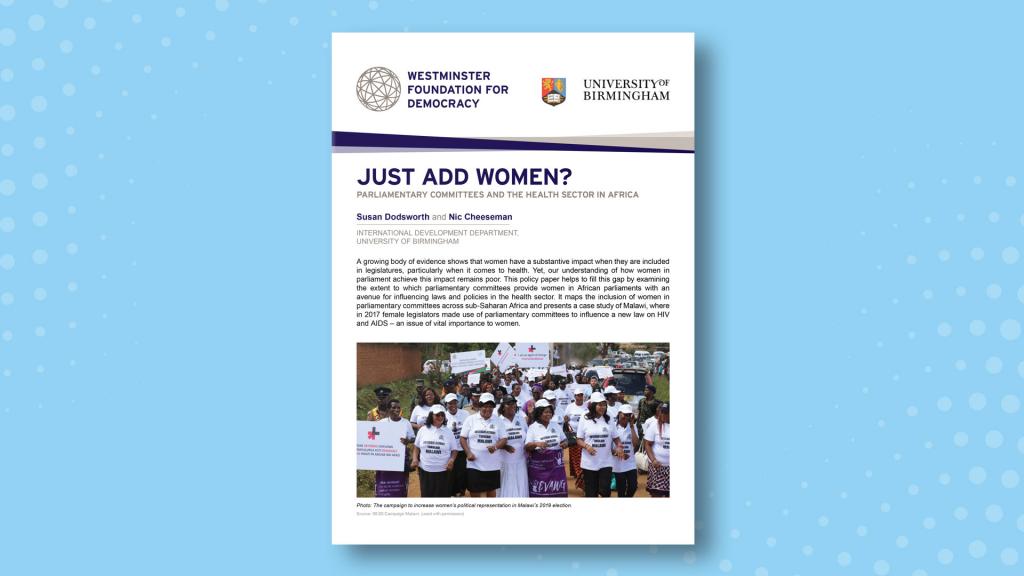WFD’s research programme is building an evidence base for what works when it comes to strengthening democracy. Our research also aims to improve the quality of the work we and our partners do. We commission new research and test and evaluate WFD programmes and activities. Our research draws on our experience working across parliaments, political parties, civil society and elections.
Since 2016, WFD has been in a research partnership with the International Development Department at the University of Birmingham. Led by our Director of Research and Evaluation, Dr Graeme Ramshaw, Professor Nic Cheeseman and Dr Susan Dodsworth, the partnership takes a new and innovative approach by giving a research institution contemporary and direct access to our data, practice, people and beneficiaries. Research produced under the partnership - on parliamentary strengthening, political party support and civil society assistance - has generated positive attention, both for its findings and as a new model for collaboration between academics and practitioners.
Research questions
Our research is focused on the following questions:
Key findings from the research partnership:
- Parliamentary strengthening programmes face unavoidable trade-offs when selecting programme approach (focus on issue or institution) and defining programme scope (who to include).
- The sister-party model has greater impact when parties share not just ideology, but also similar levels of representation and power in the political system.
- Citizen participation programmes tend to focus on narrow groups of established CSOs, potentially perpetuating a de-politicised vision of civil society.
- Three factors influence how easy it is to motivate legislators to reject repressive laws: the existing level of democracy; the strength of international leverage; and the nature of the electoral system.


